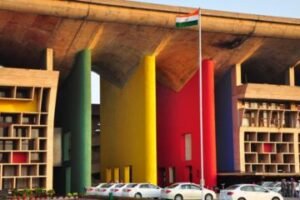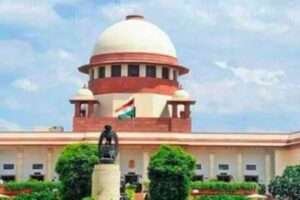Scope Of Interference In Criminal Appeal By Special Leave Under Article 136 Of Constitution: Supreme Court Explains
Case: Mekala Sivaiah Vs State Of Andhra Pradesh
Coram: Justices Dinesh Maheshwari and Krishna Murari
Case No.: CrA 2016 OF 2013
Court Observation: Article 136 of the Constitution of India is an extraordinary jurisdiction which this Court exercises when it entertains an appeal by special leave and this jurisdiction, by its very nature, is exercisable only when this Court is satisfied that it is necessary to interfere in order to prevent grave or serious miscarriage of justice. It is well settled by judicial pronouncement that Article 136 is worded in wide terms and powers conferred under the said Article is not hedged by any technical hurdles. This overriding and exceptional power is, however, to be exercised sparingly and only in furtherance of cause of justice. Thus, when the judgment under appeal has resulted in grave miscarriage of justice by some misapprehension or misreading of evidence or by ignoring material evidence then this Court is not only empowered but is well expected to interfere to promote the cause of justice.
It is not the practice of this Court to re-appreciate the evidence for the purpose of examining whether the finding of fact concurrently arrived at by the Trial Court and the High Court are correct or not. It is only in rare and exceptional cases where there is some manifest illegality or grave and serious miscarriage of justice on account of misreading or ignoring material evidence, that this Court would interfere with such finding of fact.
This Court does not function as a regular Court of Appeal in every criminal case. Normally, the High Court is a final court of appeal and this Court is only a court of special jurisdiction. This Court would not therefore reappraise the evidence to determine the correctness of findings unless there are exceptional circumstances where there is manifest illegality or grave and serious miscarriage of justice, for example, the forms of legal process are disregarded or principles of natural justice are violated or substantial and grave injustice has otherwise resulted.
This Court does not interfere with the concurrent findings of fact unless it is established: i. That the finding is based on no evidence; or ii. That the finding is perverse, it being such as no reasonable person could arrive at even if the evidence was taken at its face value; or iii. The finding is based and built on inadmissible evidence which evidence, excluded from vision would negate the prosecution case or substantially discredit or impair it, or iv. Some vital piece of evidence which would tilt the balance in favour of the convict has been overlooked, disregarded or wrongly discarded
(1) that this Court would not interfere with the concurrent finding of fact based on pure appreciation of evidence even if it were to take a different view on the evidence; (2) that the Court will not normally enter into a reappraisement or review of the evidence, unless the assessment of the High Court is vitiated by an error of law or procedure or is based on error of record, misreading of evidence or is inconsistent with the evidence, for instance, where the ocular evidence is totally inconsistent with the medical evidence and so on; (3) that the Court would not enter into credibility of the evidence with a view to substitute its own opinion for that of the High Court; (4) that the Court would interfere where the High Court has arrived at a finding of fact in disregard of a judicial process, principles of natural justice or a fair hearing or has acted in violation of a mandatory provision of law or procedure resulting in serious prejudice or injustice to the accused; (5) this Court might also interfere where on the proved facts wrong inferences of law have been drawn or where the conclusions of the High Court are manifestly perverse and based on no evidence.
“The testimony of a witness in a criminal trial cannot be discarded merely because of minor contradictions or omission as observed by this Court in Narayan Chetanram Chaudhary & Anr. Vs. State of Maharashtra, wherein while considering the issue of contradictions in the testimony, while appreciating the evidence in a criminal trial, it was held that only contradictions in material particulars and not minor contradictions can be a ground to discredit the testimony of the witnesses.”
Previous Posts
JJ Act: Child In Conflict With Law Can Seek Anticipatory Bail U/S 438 CrPC: Bombay High Court
Cannot Find Favour When Free Speech Is Celebrated – Kerala High Court Quashes Censure against KSEB Cashier For WhatsApp Text Against CM Download Judgement
Keywords
Interference In Criminal Appeal, Scope Of Interference In Criminal Appeal, Article 136 Of Constitution




